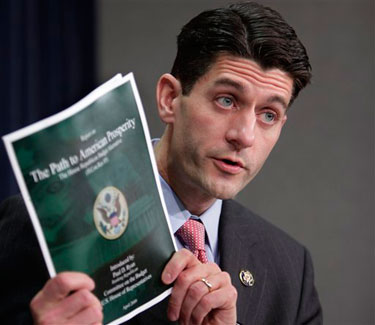Imaginary flap over Marco Rubio
The VP flap yesterday over Marco Rubio’s not being ‘vetted’ as Mitt Romney’s pick for the second spot on the Republican ticket was pretty weird, even for television. I’m all for imagination, the play of color and the zodiac of human wit and all that, but there’s supposed to be a limit. Lo-mein-for-brains took over the airwaves yesterday, at least in politics.

Rubio
Seriously: Not that this writer bears any brief for Romney, but to call him out for not vetting Rubio for the GOP nomination for Vice President of the United States is just baseless. This is what passes for political analysis nowadays–a flap because Marco Rubio is reportedly not being considered for the VP spot?
Why should he be considered? Why in the world should the Romney campaign, or any presidential campaign, spend time and resources vetting Marco Rubio?
Let’s run down a quick list of the premises of this remarkable criticism of Romney. For perspective, it might be remembered that Romney is the man who, as they say in convention nominating speeches, recommended letting Detroit go bankrupt; who has never met a war he didn’t like except the one in which he could have served; who gives every sign of wanting another trillion-dollar tax cut for the rich and another trillion-dollar war if he can get it.
So what are they talking about, chez Romney? –Rubio. Marco Rubio?!?
Let’s have a little correction here, or at least a rethinking of some of those glib assertions all over the place yesterday.
No, passing over Rubio is not somehow an ‘insult to Hispanics’. There is less than no evidence that Rubio would draw Latino voters to the GOP or to the Romney ticket. Rubio is Cuban-American, not from Mexico or points south–and not even a refugee from Castro at that. His parents fled Cuba, as we know from the reporting of the WashPost’s Manuel Roig-Franzia, under the Batista regime. More importantly, every typical GOP policy Rubio supports is antithetical to the preferences of most Latino voters as expressed in recent elections. Immigration is only a partial exception–and Rubio’s comparative mildness or non-xenophobic position on immigration runs counter to that GOP ‘base’ we hear so much about. Back to Latinos, it would be more insulting to assume that Latinos are going to vote in a bloc for a man just because his last name ends in a vowel.
No, Rubio is not overwhelmingly ‘popular’ nationwide. He did well for himself in Florida, where the civic infrastructure has been laid waste by GOP state administrations and legs. The general public knows little about him except that he is young and Republican and male and married. There is no indication that he would help carry any other state. In fact, there is no hard evidence that he would help Romney carry Florida. If placed under nationwide scrutiny, his policies, his finances–that misuse of official credit cards, for example–and his misstatements about family history might well catch up with him. Then there’s the nature of his donors. He is no shoo-in, not somebody to be considered automatically a plus.
No, Rubio would not necessarily carry Florida. If Florida voters get a clear choice and a clear look at GOP policy–another trillion-dollar war, another trillion-dollar drain of public resources set up by tax policy for the wealthy and for corporations–there is no reason to think Rubio would somehow outweigh that in the balance. Self-adoration is not the same as the adoration of a multitude.
No, Rubio is not qualified to be Vice President. Cast of thousands, admittedly. Virginia’s Gov. McDonnell Douglas is also not qualified to be VP–unless VP stands for vaginal probe–but gets talked about that way anyway, as does Rubio.
No, Rubio is not such a significant political figure that he automatically gets entered in the veepstakes. What, exactly, has Marco Rubio done as a senator? What if anything did he accomplish in Florida, aside from some credit-card shopping?
No, Rubio would not necessarily be an overwhelmingly popular choice for the Republican ‘base’. The first choice of the GOP ‘base’ is not black; not female; not Latino. Never. They don’t say it, they are chagrined at being considered prejudiced, they tend to be defensive about it–except in private conversations–and they put up with tokens, exceptions and the Herman Cains of the world cheerfully. They don’t have a high opinion of politics, of candidates for office, for public office or for civic engagement in the first place, after all. But they still have their preferences, their base attitude so to speak. The national political press has spent a good fifty years ignoring this attitude and thus covering up for it. Meanwhile, the politicians the insiders have protected have spent decades ignoring the racial disparity in applying the death penalty, just to take one example.
It’s still remarkable that they can get away with it, after all these years.
That said, from a certain perspective it might be beneficial if Rubio did actually end up getting put through what former Vice President Dick Cheney called the meat grinder.
In narrowly political terms, however, that’s another good reason for the Romney campaign not to subject him to it. All these commentators speaking, ostensibly, from the perspective of Romney’s political advantage–suppose the Romney team found out something about Rubio? What then?
BizarroWorld veepstakes.
Indirectly the flap yesterday may have been of benefit to the public, at that. If Romney can be pushed around this easily–doing an apparent 180 on a potential VP choice, just because some television commentators discussed Rubio’s not being on the list–then it’s good for American voters to know it.
Funny how you never hear the blowhards on air talking about a ‘Sistah Souljah moment’ when a Republican candidate is involved.

Policy matters
But then it is seldom suggested that a Republican candidate is actually trying to help a disadvantaged person or group, so there’s no bar to raise for hypocrisy in that regard.






